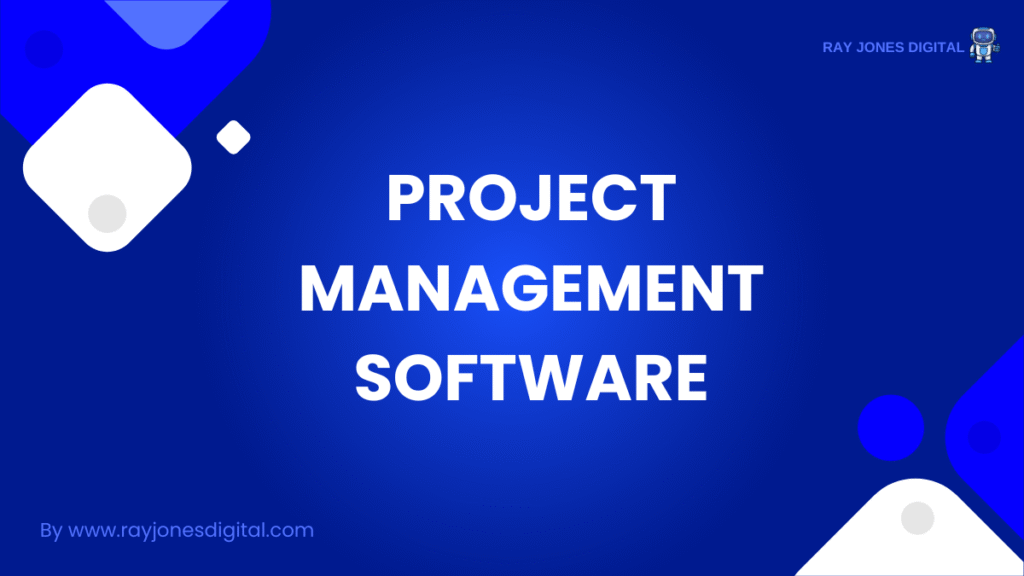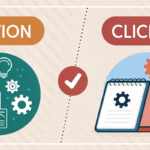
Small businesses face unique challenges when it comes to managing projects effectively. With limited resources, tight budgets, and growing competition, choosing the right project management software can make the difference between chaos and success.
The project management software landscape has evolved significantly, with new tools emerging that cater specifically to small business needs. From streamlined task management to comprehensive collaboration features, these platforms help teams stay organised, meet deadlines, and deliver quality results without breaking the bank.
This guide explores the top project management software options for small businesses in 2026, examining their key features, pricing, and suitability for different team sizes and industries. Whether you’re a startup looking for basic task tracking or an established small business needing advanced reporting capabilities, you’ll find the perfect solution to streamline your operations.
What Makes Great Project Management Software for Small Businesses?
Small businesses have distinct requirements that differ from large enterprises. The ideal project management tool must balance functionality with simplicity, offering powerful features without overwhelming users or budgets.
Essential Features to Look For
Intuitive User Interface
Small business teams rarely have time for extensive training. The best project management software offers clean, intuitive interfaces that team members can master quickly. Look for platforms with drag-and-drop functionality, clear navigation, and minimal learning curves.
Scalable Pricing Models
Budget constraints are real for small businesses. Effective project management tools offer flexible pricing that grows with your team. Many platforms provide free tiers for small teams, with affordable upgrade options as your business expands.
Collaboration Tools
Remote and hybrid work arrangements have become standard. Your project management software should facilitate seamless communication through built-in messaging, file sharing, and real-time updates. Team members need to stay connected regardless of their location.
Mobile Accessibility
Small business owners and team members are often on the move. Mobile apps ensure project visibility and management capabilities from anywhere. Look for platforms that offer full functionality across desktop and mobile devices.
Integration Capabilities
Small businesses rely on various tools for different functions. Your project management software should integrate smoothly with existing systems like accounting software, customer relationship management platforms, and communication tools.
Top 7 Project Management Tools for Small Businesses
1. Trello
Trello remains a favourite among small businesses for its simplicity and visual approach to project management. Built around the Kanban board methodology, it transforms complex projects into manageable visual workflows.
Key Features:
- Card-based task management system
- Customisable boards and lists
- Power-ups for extended functionality
- Butler automation for repetitive tasks
- Team collaboration tools
Best For: Creative teams, marketing agencies, and businesses preferring visual project tracking.
Pricing: Free tier available; paid plans start from £4 per user per month.
2. Asana
Asana strikes an excellent balance between functionality and usability. It offers multiple project views, robust task management, and comprehensive reporting features that scale with growing businesses.
Key Features:
- Multiple project views (list, board, timeline, calendar)
- Advanced task dependencies and subtasks
- Custom fields and project templates
- Team dashboards and reporting
- Goal tracking and portfolio management
Best For: Service-based businesses, consultancies, and teams requiring detailed project tracking.
Pricing: Free for teams up to 15 members; premium plans from £8.99 per user per month.
3. Monday.com
Monday.com provides a highly customisable platform that adapts to various business needs. Its colourful interface and flexible structure make it suitable for diverse industries and project types.
Key Features:
- Customisable workflows and boards
- Automation and integration capabilities
- Time tracking and resource management
- Advanced reporting and analytics
- Client collaboration portals
Best For: Growing businesses requiring customisation and advanced features.
Pricing: Plans start from £7 per user per month; no free tier for ongoing use.
4. ClickUp
ClickUp positions itself as an all-in-one workspace, combining project management with document creation, goal setting, and team communication. It’s particularly valuable for businesses seeking to consolidate multiple tools.
Key Features:
- Multiple project views and layouts
- Built-in docs, wikis, and whiteboards
- Time tracking and productivity monitoring
- Advanced automation and custom fields
- Extensive third-party integrations
Best For: Tech-savvy teams and businesses wanting comprehensive project management capabilities.
Pricing: Generous free tier; paid plans from £5 per user per month.
5. Wrike
Wrike offers enterprise-grade features in packages suitable for small businesses. Its robust project planning capabilities and advanced reporting make it ideal for businesses managing complex projects.
Key Features:
- Gantt charts and project timelines
- Resource management and workload balancing
- Custom dashboards and reporting
- Approval workflows and proofing
- Advanced security features
Best For: Professional services, creative agencies, and businesses with complex project requirements.
Pricing: Free tier for small teams; professional plans from £8.10 per user per month.
6. Basecamp
Basecamp focuses on simplicity and team collaboration. Its straightforward approach to project management eliminates complexity whilst maintaining essential features for effective project delivery.
Key Features:
- Simple project organisation structure
- Message boards and group chat
- To-do lists and schedules
- File sharing and document storage
- Client access and collaboration
Best For: Small businesses prioritising simplicity and team communication.
Pricing: Flat rate of £79 per month for unlimited users; 30-day free trial available.
7. Notion
Notion combines project management with knowledge management, offering a flexible workspace that adapts to various business needs. Its building-block approach allows teams to create customised solutions.
Key Features:
- Flexible database and page structure
- Task and project templates
- Team wikis and documentation
- Collaborative editing and commenting
- Integration with popular business tools
Best For: Businesses requiring both project management and knowledge management capabilities.
Pricing: Free for small teams; paid plans from £6 per user per month.
Choosing the Right Tool for Your Business
Assess Your Team’s Needs
Start by evaluating your current project management challenges. Are you struggling with task visibility, team communication, or deadline management? Different tools excel in different areas.
Consider your team size and growth projections. Some platforms offer better value for smaller teams, whilst others provide more scalable solutions for businesses planning significant expansion.
Evaluate Integration Requirements
Review your existing business tools and systems. The best project management software should integrate seamlessly with your current technology stack. Popular integrations include:
- Accounting software (QuickBooks, Xero)
- Communication tools (Slack, Microsoft Teams)
- File storage (Google Drive, Dropbox)
- Customer relationship management systems
- Time tracking applications
Test Before Committing
Most project management platforms offer free trials or free tiers. Take advantage of these opportunities to test functionality with your actual projects and team members. Pay attention to user adoption rates and feedback during trial periods.
Consider Long-term Costs
Whilst initial pricing is important, consider the total cost of ownership. Factor in potential add-ons, integration costs, and training requirements. Some apparently cheaper options may become expensive as your needs grow.
Implementation Best Practices
Start Small and Scale Gradually
Begin with basic features and gradually introduce advanced functionality as your team becomes comfortable with the platform. This approach reduces resistance and ensures better adoption rates.
Establish Clear Processes
Define how your team will use the project management software before implementation. Create guidelines for task creation, status updates, and communication protocols.
Provide Adequate Training
Invest time in proper training for all team members. Most platforms offer comprehensive resources, webinars, and support documentation to help with implementation.
Monitor and Adjust
Regularly review how the software is working for your team. Gather feedback and make adjustments to processes and configurations as needed.
Making Your Decision Work for Your Business
Selecting the right project management software is just the first step. Success depends on proper implementation, team adoption, and ongoing optimisation of processes.
The tools highlighted in this guide represent the best options available for small businesses in 2026. Each offers unique strengths that can transform how your team manages projects and collaborates.
Consider starting with platforms that offer generous free tiers or trials. This approach allows you to test functionality without financial commitment and ensures the tool meets your specific needs before making a long-term investment.

I am Ray Jones Digital
My current occupations: a Digital Marketer, Local SEO expert, Link Builder, and WordPress SEO specialist. Shopify SEO, Ecommerce Store Management, and HTML & WordPress Developer I have been practicing the above mentioned services for more than 10 years now As an SEO expert working with your ongoing projects.



